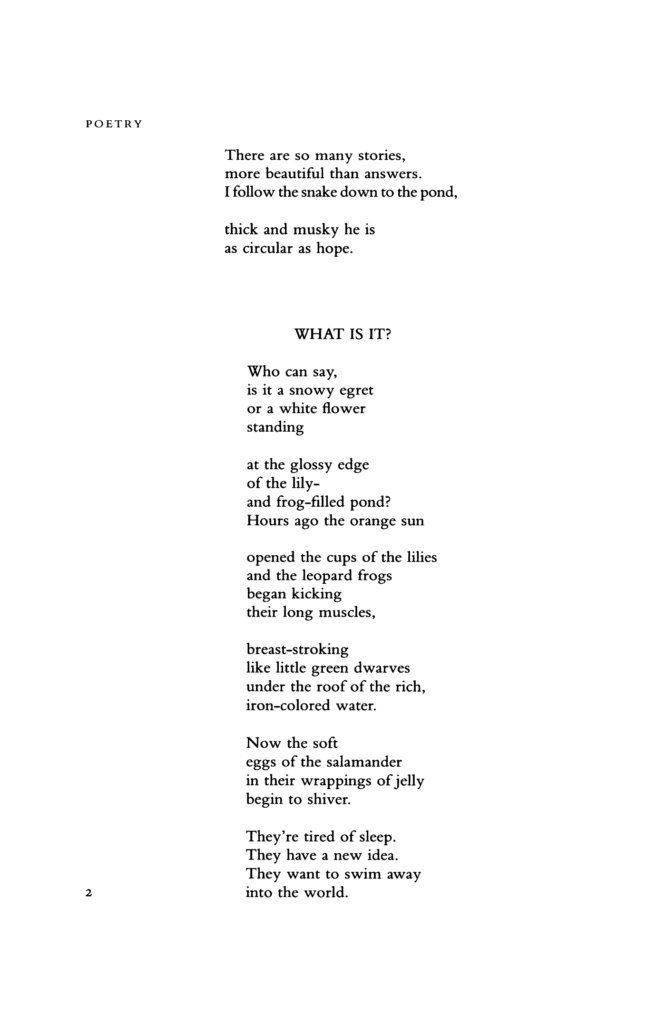69 degrees
79% humidity
dew point: 60
the almost downtown turn around
This run felt hard and I wasn’t sure I’d be able to do it. But I did, with the help of several walks. I’m surprised at how little it bothers me that I’m walking so much during these runs. Or that I’m going so slow. Have I given up or just become wiser and more measured in my approach? Or some thing else that I can’t quite figure out? Whatever it is, I’m continuing to train and survive and have moments that I deeply enjoy. I would like to work on pushing through some of the more difficult moments.
For the first half of the run, I listened to an old On Being episode with Mary Oliver. I love Mary Oliver. Here are a few lines that I particularly liked:
What is the meaning of life?
“have no answers but have some suggestions.” I was expecting her to end her line with: “have lots of questions.” I like that she didn’t and I like the idea that we can make suggestions instead of assertions or claims. These suggestions offer insight without definite answers. I’d like to do a writing experiment organized around the idea of having suggestions instead of answers.
writing while walking
They discuss how Oliver writes on her many walks through the woods. A notebook is mentioned. I’d like to know, in more detail, her process of walking and writing. A few months ago, I read about Jamie Quattro and how, if she got an idea while she was running for a story, she would stop and find a stick and then scratch some notes on her arm (or in her hand?). I’ve tried composing lines while running by speaking them into my voice memo app. But, how does Oliver do it? Maybe she writes about it somewhere?
listening convivially
Krista Tippet references Mary Oliver’s suggestion to “listen convivially” while walking. Where does Oliver say this? In a poem? Prose? An interview?
convivially: good company, joyful/agreeable attitude, greeting others/the world with delight
For me, listening in such an important part of the process of running and paying attention. I like the idea of being convivial as we listen. What are the subtle (and maybe not so subtle) differences between being convivial and generous or open?
attention without feeling is only a report
“You need empathy with it rather than just reporting. Reporting is for field guides. And they’re great. They’re helpful. But that’s what they are. But they’re not thought provokers. And they don’t go anywhere. And I say somewhere that attention is the beginning of devotion, which I do believe.” Attention/Devotion/Rumination/Engagement/Feeling the Force of Ideas and Experiences and Moments.
mystery is in that combination of discipline and the convivial listening
I’m really interested in how being disciplined and undisciplined combine to generate creativity and a more meaningful life. Limits, in the form of structure–Oliver discusses how one of her most famous poems, “Wild Geese,” began as a writing exercise in using end-stopped lines–and freedom, in the form of experimenting, taking risks, imagining new ways of writing, being, doing.
Such wonderful ideas! I can’t wait to read more.
Here are 2 of her poems that I found and want to spend more time with: Spring and What is it?

And here’s my attempt at playing around with Oliver’s idea of suggestions, not answers.
a suggestion on suggestions
I’ve never been good with answers,
giving them, that is.
I can handle accepting them,
as long as they aren’t final
or firm
or boring,
lacking imagination and a wonder
that is necessary for joyful living.
I used to believe that this was a problem,
my refusal to give answers.
It certainly is for some people.
But, no longer for me.
Answers are overrated and too easy.
Even sometimes lazy.
I always want questions.
And now, having heard Mary Oliver utter it in an interview,
suggestions.
Possibilities to explore, entertain, use in our experiments.
Proposals that might fit the facts and feelings.
Things to consider
and ruminate over as I wander through the woods
or run on the path that stretches ahead of me for miles.
And, a poem inspired by Oliver’s exercise in combining end-stopped lines with enjambment and by Gros (Philosophy of Walking) and his use of Nietzsche and the question from The Gay Science about the value of a book or dance or musical composition: “Can they walk?”
How Does Your Writing Move?
With ideas that end when the line or the path does.
And ideas that wander, traveling over
the edge, maybe down
into the gorge, where mystery lives,
behind the green veil that covers the trees from mid-May to early October.
In forms that hold tight with elbows at a 90 degree angle.
And forms that sprawl
all over the place. Messy moments
transformed into words that spill across
the page, leaking energy (and black ink).
Using syntax that remains steady and even.
And syntax that starts. Stops. And starts again,
moving slowly through ideas and experiences and feelings and images.
Then, rapidly.
Like jagged breathing during a tempo run.